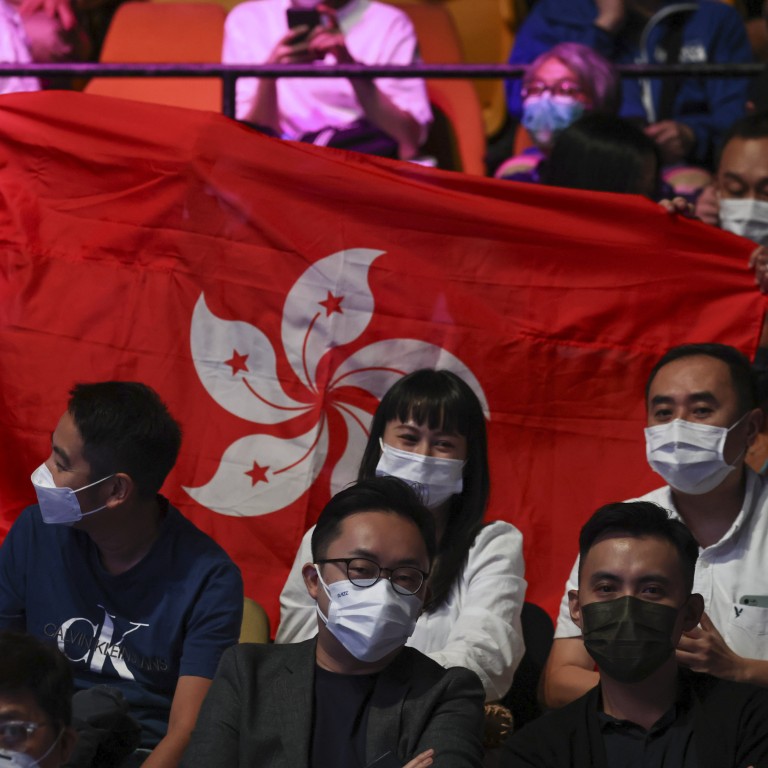
Lost for words after latest Hong Kong anthem gaffe
- Playing of Hong Kong protest song instead of national anthem at international ice hockey face-off despite new guidelines must be fully investigated
Making the same mistake repeatedly is hardly excusable, even more so when it involves matters of national pride and dignity. The latest mix-up of a protest song and the national anthem, this time at the Ice Hockey World Championship in Europe, has added to a series of blunders that have left government and sports officials red-faced.
Despite reviews and guidelines to prevent any recurrence, they mean little if mistakes still occur.
A video of the incident shows the organiser playing Glory to Hong Kong, a song linked to the 2019 social unrest, instead of the March of the Volunteers, after the city’s team beat Iran 11-1 in a match at Sarajevo, the capital of Bosnia and Herzegovina on Tuesday.
The wrong tune was soon stopped after members of the Hong Kong team realised and made the timeout “T” signal, a required gesture under guidelines issued in the wake of similar blunders at overseas sporting events last year.
The latest gaffe brought a prompt apology from the organiser and the correct anthem was then played.
Hong Kong man denies national anthem insult after use of protest song on Olympics video
The government said it “strongly deplored” the incident, noting that athletes had immediately lodged a protest in accordance with guidelines.
“The government recognises the action taken by the Hong Kong athletes on the spot which upheld national dignity,” a government spokesman said.
The Sports Federation and Olympic Committee of Hong Kong has been ordered to conduct an investigation, including whether the relevant sports body had followed procedure and checked with the organiser to ensure the anthem was the right one.
A senior honorary leader of the committee admitted that another such incident was undesirable, but the team manager may not have been able to closely monitor the situation at the time because of a variety of circumstances.
In a separate statement, the committee said the athletes and their manager had responded swiftly in an appropriate manner. “This proves that the relevant guidelines have all along been effective,” a spokesman said.
But one has to ask why the wrong tune was played in the first place, and whether those responsible for preventing mistakes could have done more. Answers are eagerly awaited.

